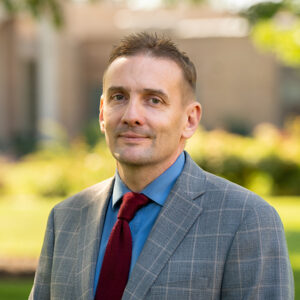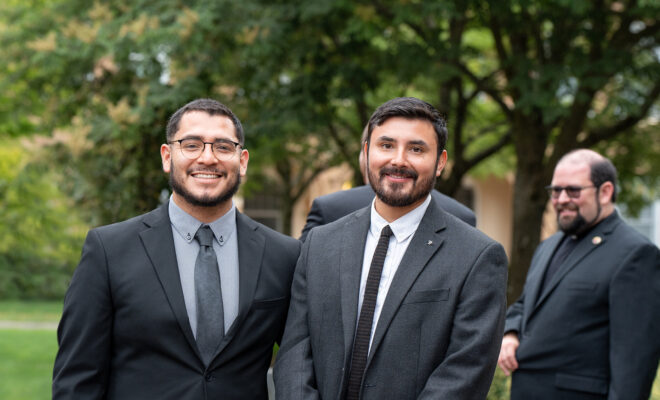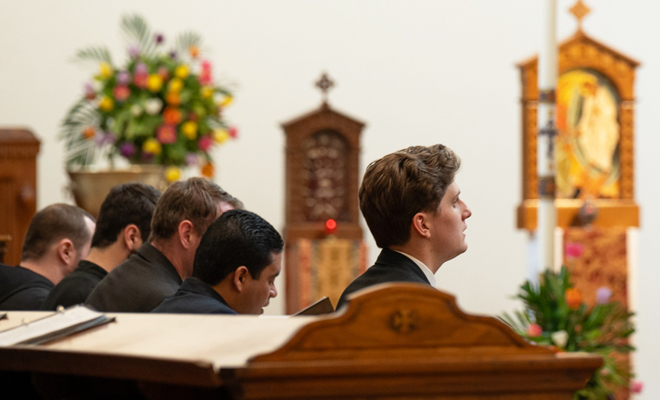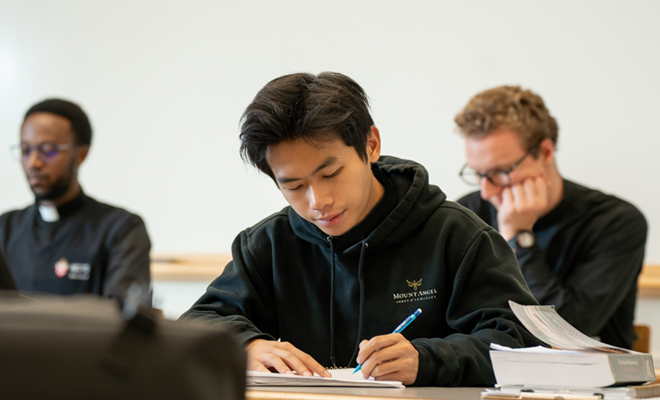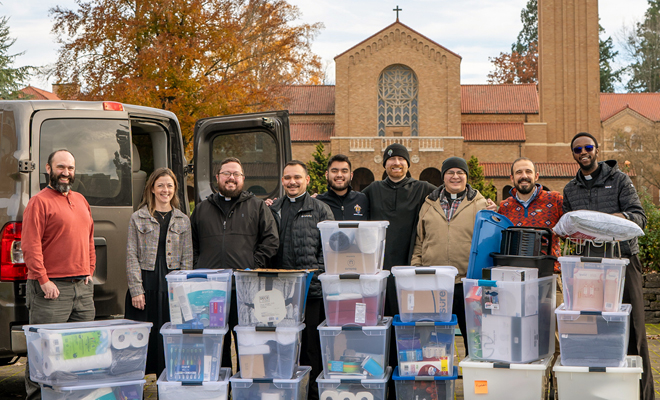The discipleship stage at Mount Angel Seminary is centered on a systematic and rigorous formation that lasts not less than two years. The goal of this stage is to grow in an intimate relationship with Jesus Christ, built on the life of meditation and contemplation. The focus of Christian Humanism at this stage of formation at Mount Angel Seminary includes the training of the man’s character in Christian virtue. This work, in addition to the study of philosophy which occurs at this stage, provides a solid foundation for the future stages of seminary formation.
Men coming into the discipleship stage have varied backgrounds and experiences in life, work, and education. At Mount Angel, the discipleship stage takes this diversity of experience into account and the program is designed to meet the educational and formative needs of the individual.
Vocational discernment to priesthood is key during the discipleship stage, with the goal that each man be able to articulate clearly his call and conviction to be a priest. The seminarian advances to the configuration stage, at which time candidacy is received, based on his own discernment and with the positive confirmation of the seminarian’s formators.


